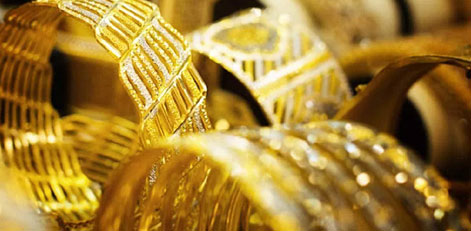No. of views : (8597)
How much tax does your gold jewels attract?
Posted on: 19/Oct/2017 5:34:16 PM

Do you constantly invest in gold jewels perhaps on all Diwali year after year? If yes, you must perhaps be a rich person by now. In the last decade, the price of gold has almost tripled. If you are in the thought of taking out your gold and reap sell it to obtain gain, you need to think twice about the tax you will be bound to cough up. Similar to any other kind of investment, gold also attracts tax. Like any other asset such as shares, bonds, debentures, mutual funds, etc., gold is considered a capital asset. All kinds of capital gain are taxable, no matter what. So, the implications of having fat, bulky gold in physical form are listed below
The tax imposed on gold depends on the total duration of holding it in physical form with you.
Below 3 years
If you plan to sell gold within 3 years of buying, the gains out of it will be considered as short term capital gain. These will thus be considered like any other kind of income. These shall be included in your income and will be taxed similar to your income tax slab.
More than 3 years
If you have had gold for more than 3 years, the gain got out of it will be called as long term capital gain. These will be taxed at 20.6 percent along with indexation benefits. In this, the purchase price of asset will be increased and capital gain will be decreased.
For instance, consider that you have invested Rs 50,000 in gold purchase about a decade ago. This has now got appreciated to Rs 1,50,000. So, the gain you have made out of it is Rs 1,00,000. For this, a tax of 20.6 percent will be applicable. However, if you are taking out the indexation benefit, the tax outgo will get reduced.
Apply the inflation index on the purchase price.
Here is the formula for calculating cost inflation index
Cost Inflation Index (CII) is CII for the respective year the asset got sold or transferred divided by CII for the year in which it was bought. So, in the above case the CII is 1125 divided by 551 which is 2.04.
Next to this, it has to be multiplied with purchase price. Thus, you get the inflated price or indexed cost of gold purchase which is Rs 1.02 lakh.
Deduct this amount out of the sale price to identify the actual gain. With this, the total capital gain comes to approximately Rs 50,000 and not Rs 1 lac as earlier. To this, the tax will be imposed.
How to protect your gains?
Similar to any kind of capital gain, you are eligible to claim for exemption by investing this capital gain in residential houses or infrastructure bond as given out by NHAI or REC.







